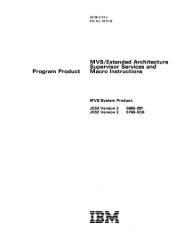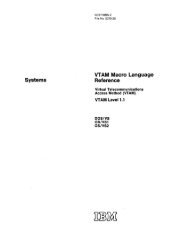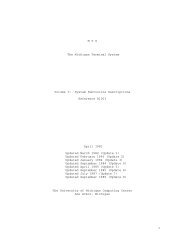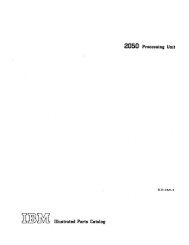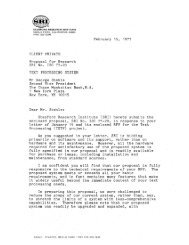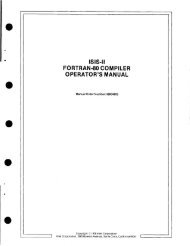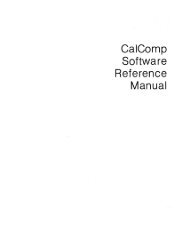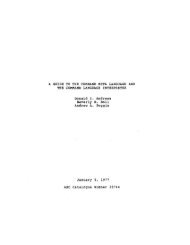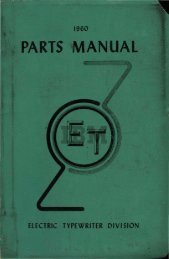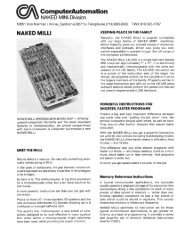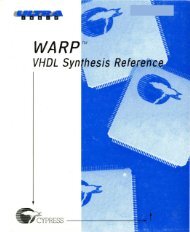TOPS-20 PASCAL Language Manual - Bitsavers
TOPS-20 PASCAL Language Manual - Bitsavers
TOPS-20 PASCAL Language Manual - Bitsavers
Create successful ePaper yourself
Turn your PDF publications into a flip-book with our unique Google optimized e-Paper software.
USING <strong>PASCAL</strong> ON <strong>TOPS</strong>-<strong>20</strong><br />
If you omit the file specification, the object file defaults to the<br />
name of the last source file, the default directory, and a file type<br />
of REL. You cannot specify this switch in the source code.<br />
You can disable this switch to suppress object code, for example, when<br />
you want to test only the source program for compilation errors.<br />
The default is /BINARY.<br />
/CHECK<br />
The /CHECK switch directs the compiler to generate co~e to perform<br />
run-time checks. This code checks for ilJegal assignments to sets and<br />
subranges, out-of-range array indices and case labels, and references<br />
to NIL pointers. The system issues an error message and terminates<br />
execution if any of these conditions occur.<br />
When this switch is disabled, the compiler does not generate code<br />
run-time checks. The default is /CHECK.<br />
for<br />
/CROSS-REFERENCE or /CREF<br />
The /CROSS-REFERENCE switch produces a cross-reference listing of all<br />
identifiers. The compiler generates separate cross-references for<br />
each procedure and function. To get complete cross-reference listings<br />
for a program, the switch must be in effect for all modules of the<br />
program. This switch is ignored if no listing file is being<br />
generated.<br />
The default is /NOCROSS-REFERENCE.<br />
You can specify this switch in the source code. Note, however, that<br />
the cross-reference listing for a portion of a procedure or function<br />
may be incomplete.<br />
/DEBUG<br />
The /DEBUG switch specifies that the compiler is to<br />
information that can be used with run-time debugging.<br />
generate<br />
The default is /NODEBUG.<br />
/ERROR-LIMIT:n<br />
The /ERROR-LIMIT switch terminates compilation after the specified<br />
number of errors, excluding warning-level errors, have been detected.<br />
The default limit is 30 errors. If this switch is disabled,<br />
compilation continues through the entire unit. You cannot specify<br />
this switch in the source code.<br />
The default is /ERROR-LIMIT:30.<br />
Note that, after finding <strong>20</strong> errors (including warning messages) on any<br />
one source line, the compiler generates error 255, Too Many Errors On<br />
This Source Line. Compilation of the line continues, but no further<br />
error messages are printed for that line.<br />
/FLAG-NON-STANDARD<br />
The /FLAG-NON-STANDARD switch tells the compiler<br />
warning-level messages at each place where the<br />
nonstandard <strong>PASCAL</strong> features.<br />
to<br />
program<br />
print<br />
uses<br />
8-8



